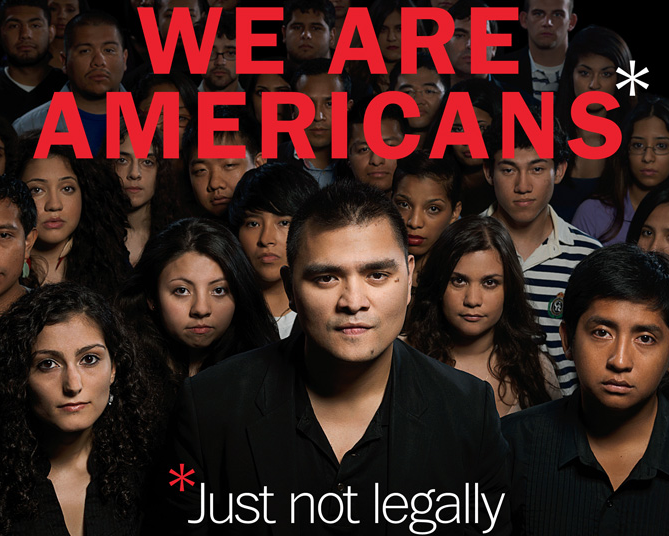On Sunday, June 29, CNN will be broadcasting the film Documented, which tells the personal story of Pulitzer Prize-winning journalist Jose Antonio Vargas and aims to show a full, complex picture of what it looks like to be an undocumented immigrant in America. Story by Ada Tseng.
Until 2011, when he penned a New York Times Magazine essay revealing his own status as an undocumented immigrant in America, Jose Antonio Vargas had been living a double life. The Pulitzer Prize-winning journalist, who had made a prestigious career for himself interviewing Mark Zuckerberg for the New Yorker and Al Gore for Rolling Stone, as well as covering the Virginia Tech shootings for the Washington Post, was living in the United States without official papers, terrified that he’d be deported at any minute if his secret was discovered.
Vargas was born in the Philippines and brought over to live with his grandparents in Mountain View, Calif., when he was 12 years old. It wasn’t until four years later, when he went to apply for a driver’s license, that he learned his papers were fake. Vargas’ grandfather had bought him a fraudulent green card as an attempt to give him a better life in the U.S., and the tentative plan was for his mother to follow (which didn’t work out) and for Vargas to work low-key jobs in the service industry (as they had) until he could hopefully marry a citizen and obtain legal papers in the future.
While this news may have scared many teenagers completely into hiding, the young Vargas was determined to prove himself worthy of the title of “American.” However, 15 years later, as an extremely successful, tax-paying adult who had achieved what some may see as the “American Dream,” Vargas was tired of lying to the world. Only when he outed himself in a national newspaper, in the most public way possible, was he able to join fellow undocumented activists and become a prominent voice and face in the controversial, high-profile immigration debates. He would later testify in front of the Senate in February 2013 about immigration reform and create Define American, a campaign and nonprofit organization that seeks to elevate the conversation about immigration in this country.

His autobiographical documentary, Documented, which Vargas produced and co-directed, had its U.S. theatrical premiere in May 2013 and will air on CNN this summer. The film documents his personal struggles in the context of the ongoing challenges of the U.S. immigration system as a whole. In a CNN article Vargas wrote last March explaining why he made Documented, he reminds the reader that, every day, an estimated 1,100 immigrants are deported and the U.S. government has deported a record number of more than 2 million immigrants in just the last five years. The film not only details his story but also features interviews with his mother in the Philippines, who he, because he cannot leave the country, has not seen in person in two decades.
“Halfway through filming, one of my filmmaker friends asked me, ‘How could you do a film on immigration and not include your mom?'” remembers Vargas. “Now, I barely talk to my mom, much less want to see her on film.” But Vargas came to understand that he couldn’t fully tackle his own pain until he understood his mother’s suffering, and her compelling story became a tribute to all parents who make extremely difficult sacrifices for their children.
“I didn’t want to show you a film where we wrap the story in a bow and say, ‘Now they’re united through Skype!'” says Vargas. “I wanted all these unanswered questions and mixed emotions,” he continues. “You want to talk to me about a broken immigration system? Well, let me show you a broken family. That’s what a broken immigration system is. Don’t talk to me about the border. Don’t talk to me about illegal people, Republicans or Democrats. Let me show you what a broken immigration system looks like.”

[wp_ad_camp_2]
This story was originally published in our Summer 2014 issue. Get your copy here.
#welcomeUS









